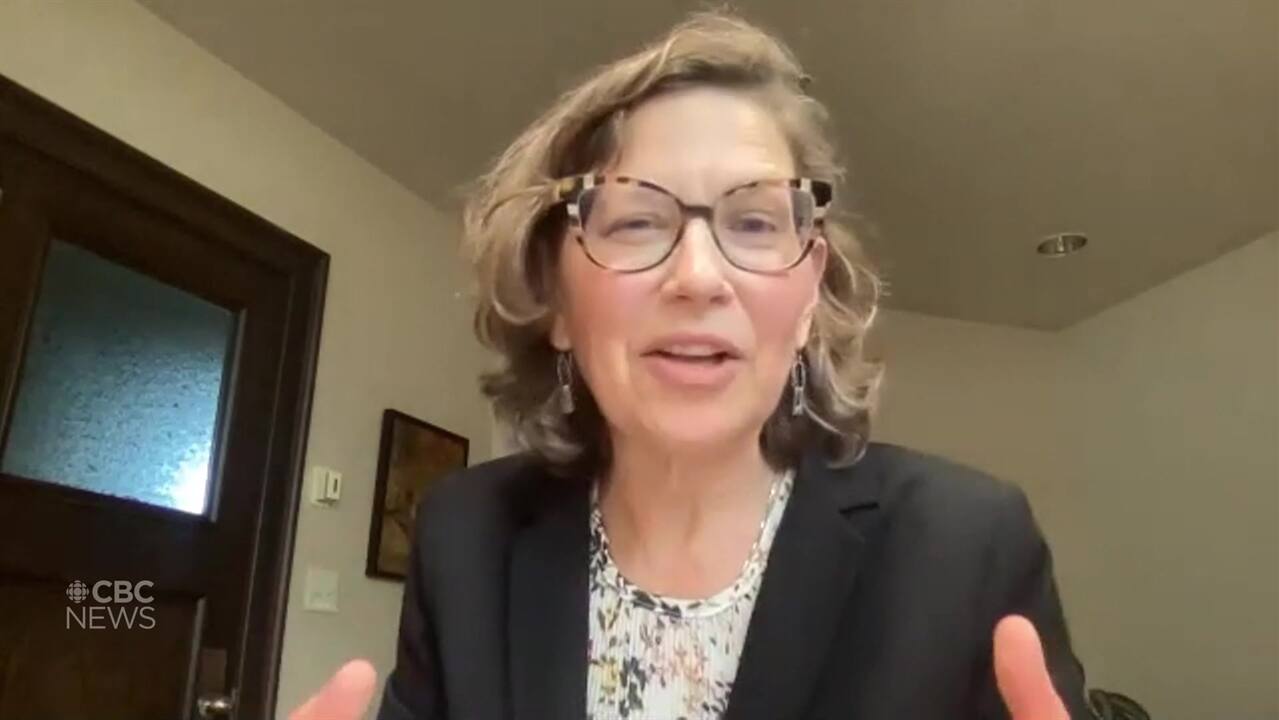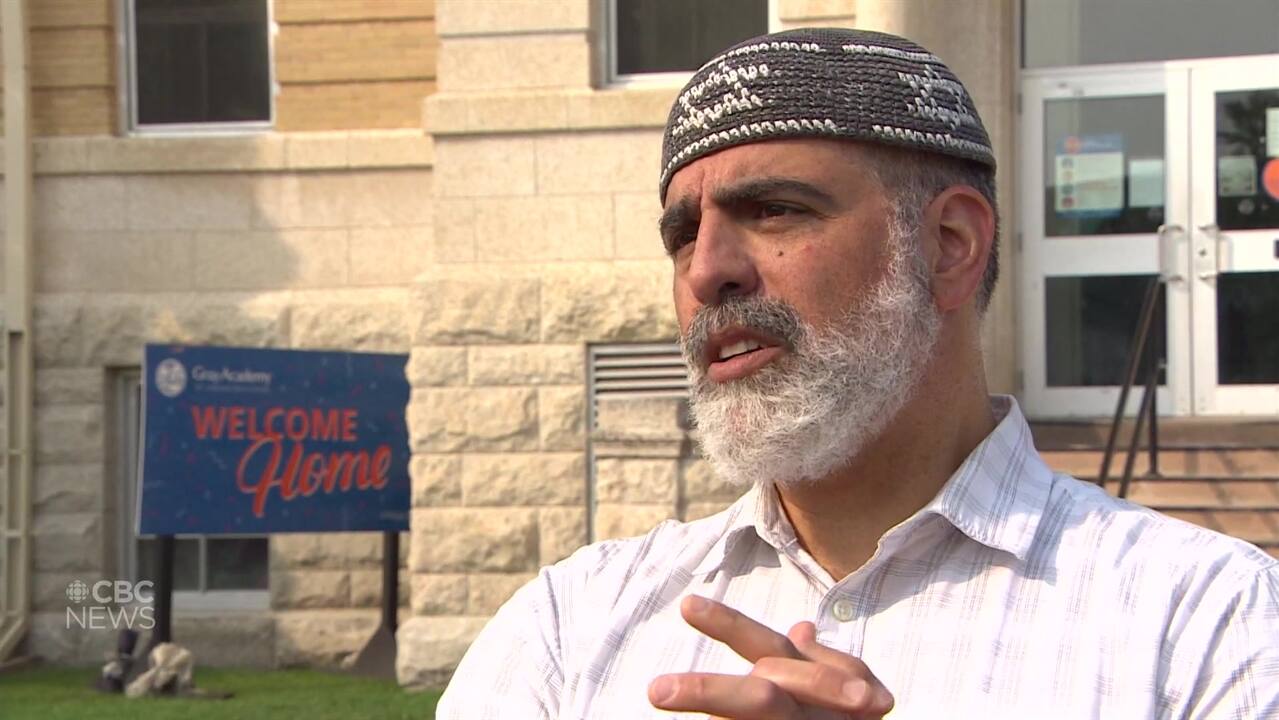As vaccine mandates continue to pop up at schools and workplaces across Manitoba, so does opposition to them based on personal and religious convictions.
As vaccine mandates continue to pop up at schools and workplaces across Manitoba, so does opposition to them based on personal and religious convictions.
And while leaders from several major faiths in the province say they’re not aware of any religious reason to refuse to get immunized against COVID-19, that hasn’t stopped some people from using their faith as a reason to push back.
At a rally this week in Steinbach, Man., about 300 people gathered to oppose vaccination and mask mandates in schools, including one who invoked Christian values as part of her reasoning.
“I am a Christian, I am a God-fearing woman and these are our temples, and we have to treat them well,” Sheena Friesen told the crowd.
“And that decision, how you treat your body well, is up to you.”
Last week, Borderland MLA Josh Guenter wrote to then-Premier Brian Pallister saying mandates will only heighten vaccine hesitancy among his constituents, including many descendants of Mennonites who came to Canada fleeing persecution.
“The deep-seated historical and cultural mistrust of government still exists, and for very legitimate reasons,” Guenter wrote.
Cheryl Pauls, president of Canadian Mennonite University in Winnipeg, said while some Mennonites point to their religion as to why they won’t get vaccinated, those reasons aren’t grounds for a religious exemption.
“A lot of them are citing religious reasons, but not religious reasons that are part of the tradition of the denomination or part of the tradition of that faith community. In a lot of ways, it has to do with what’s happened over the last hundred years or so,” Pauls said.
While she understands how that history of persecution and mistrust of government might initially lead to some hesitation, it’s been “baffling” how strong and unwavering that reaction has become among a small number of Mennonites.
WATCH | Cheryl Pauls on Mennonite vaccine hesitancy:
Opposition to vaccines in Mennonite communities ‘baffling’
Cheryl Pauls of the Canadian Mennonite University says the vaccine opposition from some Mennonite communities is out of character for them given the importance placed on caring for others in their culture. 1:05
“Generally, the communities that right now are resisting vaccine[s] would actually be very sympathetic to caring for the other, to living and doing things that wouldn’t be about their own ‘What’s best for me?’ but would be about what is best for the other,” Pauls said.
“So there’s something that actually feels out of character of what these communities tend to care about and be about.”
Individual approaches
Within many religions, there’s often room for individuals to interpret teachings in their own ways. That’s the case in Winnipeg’s Jewish community, though on this topic things are a little different, said Rabbi Kliel Rose of Winnipeg’s Congregation Etz Chayim.
“There’s always a multiplicity of opinions within the Jewish community,” Rose said.
“That being said, something of this magnitude — like COVID-19 — has to be looked at and dealt with in a very different way. This is not an ordinary situation.”
While there’s a small number of Jewish people in Winnipeg who oppose vaccine mandates, he said, there’s nothing in the Talmud that would outlaw COVID-19 vaccines. In fact, it’s the opposite.
WATCH | Rabbi explains Jewish obligation to save lives:
Saving a life takes priority in Jewish faith, rabbi says
Rabbi Kliel Rose says there is nothing he knows of in Jewish law that would prompt people to oppose the current public health orders based on their faith and actually the opposite is true. 1:09
“Saving a life … overrides every other legal requirement,” Rose said, referring to a Jewish obligation known as pikuach nefesh.
“So if that means doing something that is contrary to the Jewish legal system in order to save a life, that is the absolute priority.”
There’s a similar sentiment within Islam, said Idris Elbakri, chair of the Manitoba Islamic Association’s board.
“There aren’t any religious objections to vaccines from an Islamic perspective. None whatsoever. It’s to the contrary,” he said.
“We’re encouraged to seek the cure where we can find it, and preservation of life is one of the higher purposes of the faith.”
Similarities across religions
Other faith leaders say they also have a religious obligation to get vaccinated and protect others.
That ranges from the United Church’s belief of loving your neighbour, to the responsibility of Anglican Church members to lead the world to a place of health and safety, to the Buddhist teachings that focus on developing the mind.
And all of those Winnipeg leaders — United Church executive minister Shannon McCarthy, Anglican Diocese of Rupert’s Land Bishop Geoffrey Woodcroft and Banthe Sugathasiri of the Manitoba Buddhist Vihara and Cultural Association — say there’s nothing in their religions’ teachings that would prevent people from getting vaccinated against COVID-19.
While several say they’ve heard of members within their institutions refusing the shots, the root of their worries often comes down to something outside religion: people not having their fears addressed by credible information.
Pauls said though Mennonites pushing back against vaccine mandates have been receiving more attention recently, she thinks their reasons are actually similar to the ones people in other communities hold.
“While a religious reason might be part of that blend that’s coming together, three or four of those factors might be very much the same in other communities,” she said.
“I’m not sure that the Mennonite one is any different than the ones that are happening elsewhere.”





